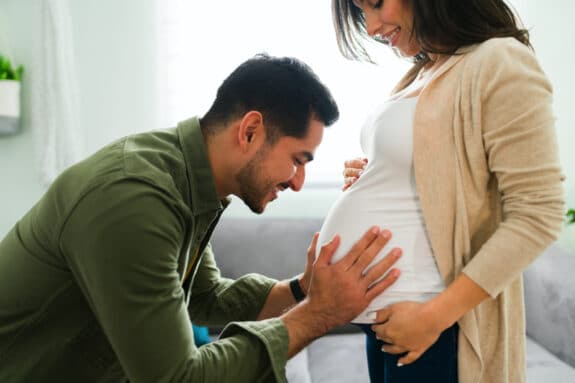Despite being told they are “infertile,” a new study from France has determined that some couples may be able to conceive without assistance, even after failed fertility treatments.
“Most infertile couples think that they are unable to conceive spontaneously, whereas our study shows this remains possible,” said Dr. Penelope Troude at the French National Medical Research Institute (INSERM).
The study was fueled by the fact that other studies have found that some couples “drop off” the waiting list for in vitro fertilization because they were able to conceive naturally. By researchers, this is referred to as “spontaneous” pregnancy.
Troude and her colleagues wanted to gain a better understanding of how often couples are able to conceive without medical intervention after IVF. To help them do this, they gathered information on 2,100 couples who had undergone fertility treatments locally since the year 2000. Eight to ten years after their treatments, researchers requested that they fill out a survey. A little more than half the couples queried responded to the survey.
Overall, researchers found that 24 percent of couples were able to conceive spontaneously after failed fertility treatments and 17 percent were able to have another child after successful IVF, despite the fact that they had been labeled “infertile.”
There is an explanation for this, according to Dr. Johannes Evers, a professor of obstetrics and gynecology at Maastrict University Medical Center in the Netherlands, who was not involved the study.
“Successful couples already had their children, so they will have used contraception,” Evers stated, explaining that men and women who are younger have a better chance at conception than older couples. Evers also pointed out that couples whose infertility cause could not be determined also had a higher chance of spontaneous conception.
Infertility can be the result of low sperm count or hormonal problems. But for approximately, approximately 12 to 13 percent of all couples diagnosed as infertile, there is no known cause.
“It must be borne in mind that infertility did not mean no chance to conceive, but low or very low chance to conceive,” said Troude.
And this isn’t the first study of its kind. Another previous study found that 44 percent of couples who had tried for more than a year to get pregnant and did not opt for fertility treatments did end up having a baby eventually. This is more prevalent in younger couples, however, and Troude did point out that as the couples’ age increases, their probability of conception decreases.
This can lead to a bit of an issue for couples when deciding whether or not to wait it out and try to have a baby without the help of fertility treatments. At more than $15,000 a cycle, which may or may not be covered by insurance, some couples don’t have a choice. But for those that do, there is no real way of determining whether or not they could be one of the couples to conceive on their own, despite their infertility diagnosis.
The findings, however, should provide hope for couples that are struggling to get pregnant or had failed fertility treatment attempts. Evers says that it should “reassure [couples] that it is not the end to not conceive by IVF, especially not if they have unexplained infertility.”
Evers also pointed out that the actual birth rate of the study may have been overestimated because couples who successfully conceived were more likely to have responded to the study than couples who had failed at getting pregnant after failed IVF, and only about half of all couples queried responded.
Related Articles:
- Giuliana and Bill Rancic Expecting This Summer!
- Study: Egg Donation Does Not Affect Fertility
- Centers for Disease Control and Prevention Analyze Recent Birth Trends








The success rates of in vitro fertilization are another benefit and reason to choose IVF.